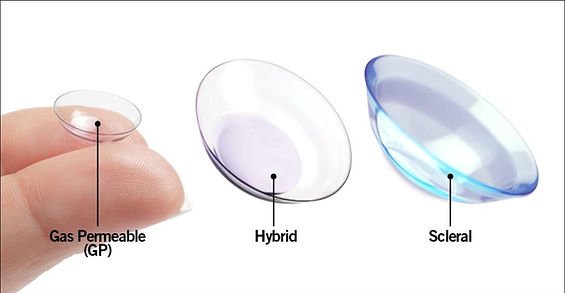Specialty contact lenses have emerged as a critical option for individuals with special vision needs. Specialty contact lenses cater to specific eye conditions. A Granada Hills eye doctor can provide customized solutions in terms of specialty contact lenses that will significantly enhance comfort and visual clarity. Most of us know about traditional contact lenses. So in this post we will get to know about specialty contact lenses and who they benefit.
What Are Specialty Contact Lenses?
Specialty contact lenses are lenses designed for people who need more than standard vision correction. Unlike traditional lenses, they are designed to meet the needs of those with unique eye conditions. Hence, they provide improved comfort, vision, and eye health for individuals facing challenges that the Granada Hills eye doctor cannot adequately address with traditional lenses.
The manufacturing process of specialty lenses involves the use of advanced materials and technologies, which enhance their fitting and performance. This customization is crucial, as the fit and design of the lenses can make a significant difference in visual acuity and comfort, especially for those with conditions like irregular corneas, severe dry eyes, or astigmatism.
Who Needs Specialty Contact Lenses?
Patients with Irregular Corneas
One of the primary groups that can benefit from specialty contact lenses include individuals with irregular corneas. Keratoconus is a condition which causes the cornea to thin and bulge, thus distorting vision. For these patients, specialty lenses can provide significant advantages. Scleral lenses vault over the cornea and rest on the sclera (the white part of the eye), thus creating a smooth optical surface that helps to correct distorted vision while also providing comfort. These lenses also help manage corneal irregularities after eye surgeries.
Individuals with Severe Dry Eye
Having severe dry eye syndrome can be challenging. Specialty lenses, scleral lenses to be specific, can be a great solution for people having astigmatism. These lenses create a fluid reservoir between the lens and the cornea, which helps to keep the eye hydrated throughout the day. This feature is especially beneficial for people whose tear film is insufficient or unstable. Specialty contact lenses provide moisture and a stable environment for the eye.
Scleral lenses are specifically tailored to correct astigmatism since it allows for incorporating specific shapes that align with the irregularities in the curvature of the cornea. These lenses also ensure that light is focused correctly on the retina, thus giving the individual a sharper vision.
Children with Vision Issues
Specialty contact lenses can also be used for children who require vision correction. Children with conditions such as amblyopia (lazy eye) or specific refractive errors can benefit from the flexibility and comfort offered by specialty contact lenses. These lenses are tailored for younger patients by considering their active lifestyles and the need for lenses that can withstand everyday activities. These lenses not only enhance their vision but also encourage children to engage in sports and other activities without the limitations of glasses.
Cosmetic Use
Although most specialty contact lenses serve functional purposes, some are designed for cosmetic use. Cosmetic lenses are used to enhance or alter the natural color of the eyes, providing an aesthetic appeal while also addressing vision correction needs. These lenses can be particularly useful for individuals looking to change their appearance for special occasions or performances. It’s essential to use cosmetic lenses responsibly to ensure that they fit properly.
The Fitting Process for Specialty Contact Lenses
One of the most crucial steps in obtaining specialty contact lenses is the fitting process. Unlike standard lenses, specialty lenses require a personalized fitting conducted by an experienced eye care professional. This process begins with a comprehensive eye examination, during which the eye care provider assesses the shape of your cornea, the health of your eyes, as well as your specific vision needs.
The fitting process involves taking precise measurements to ensure that the lenses will sit correctly on your eye. This step is critical because an improper fit can lead to discomfort and compromised vision. After the initial fitting, the eye doctor may provide trial lenses to evaluate comfort and vision quality. Follow-up visits can be scheduled to make the necessary adjustments and to ensure that the lenses perform optimally.
Ending Note
Specialty contact lenses represent a convenient option for individuals with unique vision needs. It offers solutions that traditional lenses may not provide. Whether addressing astigmatism, irregular corneas, or severe dry eyes, these lenses can significantly improve comfort and vision. If you are considering specialty contact lenses, consult with an eye care professional to explore the various options tailored to your specific needs. With the right lenses, you can achieve improved vision and also a more comfortable experience in your daily activities. If you’re interested in learning more about specialty contact lens options, make sure to reach out to a qualified eye doctor.

